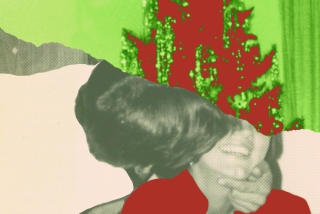An article about loss, with an error
- Share via
In response to the May 5 article “Son Finds New Life Rhythm . . .,” my female partner of 17 years and fiancee was completely surprised to read of my being “openly gay.” If my sexual orientation were toward the same sex, I would have had no problem sharing this with my parents long before they died. My parents and I had a close and open relationship.
The type of assumptive error made in this article, I do believe, deserves attention, for it reflects the ramifications of assumptive thinking and stereotyping. I believe this level of misrepresentation, and lack of fact checking, can have potentially serious consequences, and, frankly, I expected better of the L.A. Times. I encourage The Times to refrain in the future from showcasing any person’s sexual identity, especially without fact checking, so the positive intent of similar articles does not get lost due to one glaring inaccuracy.
Most important, it should never be presumed that because a man is emotionally expressive, he is likely homosexual. Emotional, cognitive or any human abilities are not the privileged domain of sexual orientation, or gender, for that matter. There is the entire range of emotionality in homosexual and heterosexual males.
The article “When Parents Die” also suggests I am an “adult orphan,” when the term “orphan” commonly denotes a “child deprived of one or usually both parents” [www.merriam-webster.com/dictionary/orphan]. Children without parents undergo a very different developmental experience than adults. I do not consider myself an orphan.
For me, caregiving my parents in their final days was part of a grieving process for all of us, a process that resulted in my feeling complete, as their son, and as an adult, after they died.
Larry Graber
Psychotherapist
“When Parents Die”


